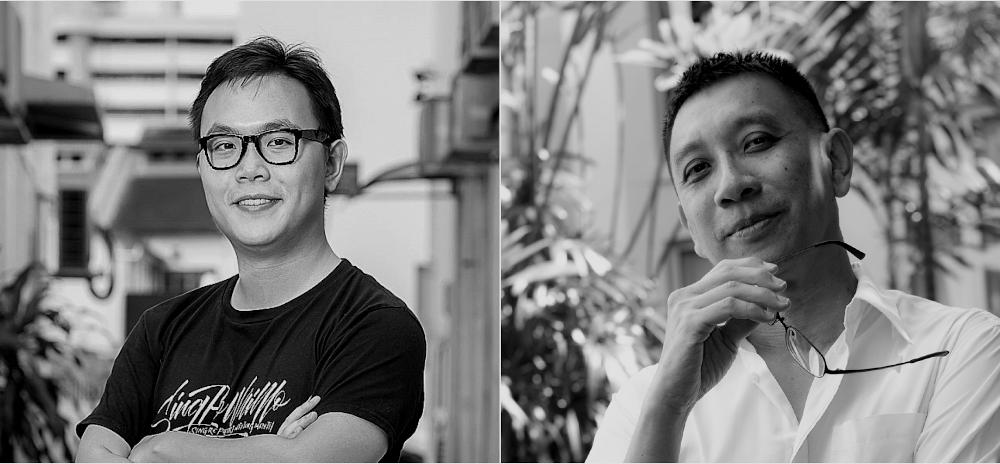
When Cordite invited us to put together a folio of contemporary Singapore poetry, it seemed like a straightforward business. The usual suspects are called, a few new names sprinkled in for progress, a grant applied for, a spreadsheet assembled … but instead, we paused.
Contemporary Singapore is commonly represented either via national / official anthologies incorporating poetry in all the four official languages of Singapore – English, Chinese, Malay and Tamil – or in independent monolingual versions, most often in English. Over the short course of Singapore’s history, the government’s policy of promoting English as the main language of instruction, administration and business has rendered its purportedly polyglot denizens tongue-tied to a sesquilingual rather than truly bilingual or multilingual state.
We decided that our curation should thus attempt to diverge from the mainstream options – either of presenting only Singaporean verse in English, or token work from each of the four official languages. Neither is a truer representation of Singapore than the other, and both omit far more than they organise.
So for this issue, we consciously eschewed the substantial but well-represented body of Singaporean poetry originally written in English, and instead sought out voices from Tamil, Malay, Chinese and more which have not been as well circulated in the anglophone literary world. We wanted to foreground Singapore’s poetic polyphony and cacophony beyond the clipped strictures of Received Pronunciation.
To further twist the plot, we also conscripted over 30 younger poets, primarily versed in English, and gave them the challenge of transcreating these works into English: whether from a language in which they possessed native fluency; from a mother tongue they hypothetically should have been fluent in after 12 years of compulsory bilingual education but really weren’t; or from an argot they had no ability to even read, let alone understand. They navigated this process via the time-honoured combination of Google Translate and emailing the original poets for guidance and forgiveness.
Our hope is that this process has forced these talented poets to explore a language they may be more reluctant to call their own, and to pick apart their own comfortable assumptions about the line, the phrase, the word. Audiences new to Singapore poetry may get a dual sense of the linguistic contestation inherent in such a project. While most of the transcreators stayed largely faithful to their source texts, a few took liberties either of the formal or conceptual (some might call this extra-faith, or even inter-faith) nature. One rationale for doing this is to broaden notions of what poetic translations can or should do as creative works in their own right – as texts that challenge and are challenged by, grapple with, speculate on, negotiate, approximate and reimagine their sources in a variety of fruitful ways.
In curating this issue, we also sought to pry open the definitions of ‘Singaporean’ and a ‘Singaporean language’. A poem in the severely endangered Portuguese-Malayan creole Kristang, with only about 2,000 speakers worldwide, is featured, alongside works in Bahasa Indonesia, Bengali, Burmese, Gujarati and Tagalog. These poets may not all hold Singaporean passports, but they are based (or have been based for a meaningful time) in Singapore. Theirs are latter-day contributions to the literature of Singapore, which continues to evolve, alongside earlier traditions that have come to call this island home.
Special thanks must go to noted Singaporean artist Michael Lee, who kindly contributed eight artworks mapping the urban jungle that is a habitat for so many of these pieces. Sing Lit Station project managers Shalani Devi and Michelle Lee were tireless and diligent in the administration of this initiative, and the National Arts Council generously provided a grant to honour the contributors.
The 37 poems in this folio are presented with the original language poems following the English pieces. Although the reader is invited to dip in and out as they will, the poems have been arranged in a loose sequence meandering through a Singaporean day – from a city-dweller’s front door to their commutes and offices, through development and place-memories and migration, via family, via language and ending at the sea that encircles and delineates our island nation.
To conclude: we apologise for any crimes against language that may have been advertently or inadvertently committed in the course of these transcreations. In every case, we obtained the consent of both source poet and translator for the works to be published as you see them here.
We are but a ragtag Babel Alliance salvaging the tools of a post-crumbling Empire – prone to producing our fair share of Hoth-like debacles – in the faint hope of occasionally firing a proton torpedo through the odd thermal exhaust port between languages. We tried something new, stood back, and waited for the explosions … that had to be cleaned up afterwards.
Thank you, Cordite, for your patience and for letting us play in your galaxy.









